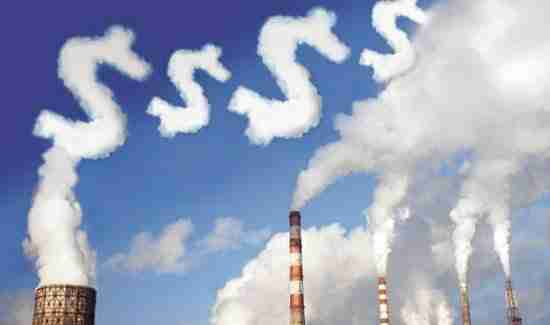 |
| Someday, Lad, all THIS will be yours |
The good news is we don't need to be scientist to think about this. Given what we can expect from a 2-5 degree increase in global temperatures by the end of the century, we can make some general assumptions about how that will impact the earth and its populations. But first let's think about what it doesn't mean.
First, the planet is not 'being poisoned' or in any way dying. Increased carbon in the atmosphere changes the climate and the planetary chemistry, but the planet has seen this movie before and done very well. Other pollutants are more toxic, but when we talk about planet earth we're talking about geologic time, and that is the secret sauce. Earth will be here for another 5 billion years, until the sun runs out of hydrogen to burn, and there is no reason to thing that life in its vast diversity won't flourish here right up until the very end.
Now, that is not to say that we're not seeing a huge extinction event. Between habitat destruction, climate change, toxic pollutants and other human activity we're losing a very large number of species. Estimates are that currently the rate of extinction is between 1000 and 10,000 times the background extinction rate, resulting in the loss of between .01% and 0.1% of all species every year. This is clearly not a sustainable rate, but the one species that is not en route to extinction is Homo Sapiens.
Carbon pollution and the resultant climate change will do many terrible things to humans and their societies. From collapsing fish stocks to persistent drought to shifting agricultural lands, starvation will be widespread. A huge portion of human development is coastal, and rising sea levels will devastate even the largest of those communities. Lack of basic resources will result in war, disease and famine, and the loss of life will be unprecedented, if for no other reason than the number of humans on the planet is unprecedented.
But here's the thing. Carbon pollution and climate change will reduce the human population the planet will be able to support over time. It will not make human survival impossible - at the end of this process there will still be at least 2-3 billion people living on earth, which may be the maximum sustainable population possible over the long term anyway. In the end there will still be humans, they'll live in great cities, and they'll continue to do great and awful things. The map of where they live and who are the greatest powers will have changed considerably, and it's very likely that the human society that emerges from the upcoming 'Dark Ages' will be much more sensitive to their responsibility for ecological stewardship.
In short, the next 150 years will contain more history, more horrors and more great catastrophes than the thousand years that preceded them, but at the end of the process things will be much as they are now for those fortunate enough to end up on the winning sides.
...



